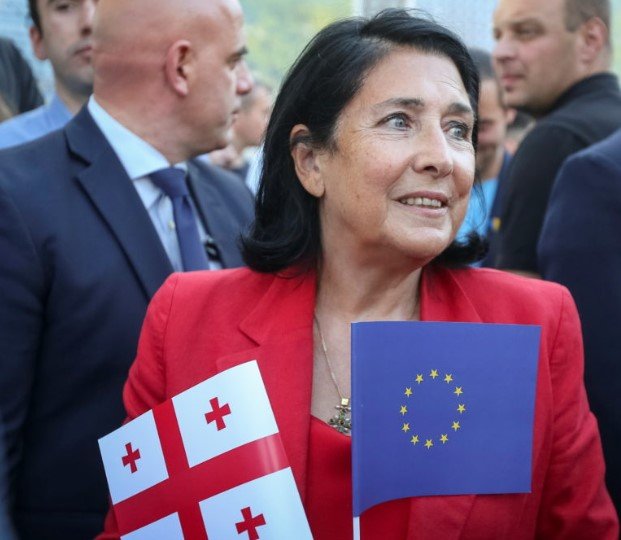In a significant move, Georgian President Salome Zourabichvili has signed a law granting amnesty to thousands of prisoners. This decision, proposed by the ruling Georgian Dream party and approved by the Parliament, will see the release of around 1,000 inmates and the reduction of sentences for approximately 4,000 others. The amnesty, however, excludes those convicted of serious crimes such as murder, drug trafficking, and terrorism. The timing of this decision, just before the upcoming parliamentary elections, has sparked discussions about its implications.
A Controversial Timing
The timing of the amnesty has raised eyebrows. Critics argue that the decision is politically motivated, aimed at influencing voters ahead of the parliamentary elections. President Zourabichvili herself hinted at this, suggesting that the amnesty would have been more appropriate either well before or after the elections. The ruling party, however, defends the move as a humanitarian gesture, emphasizing the need to alleviate prison overcrowding and offer second chances to those convicted of lesser offenses.
The debate over the timing underscores the complex interplay between politics and justice in Georgia. While the ruling party insists on the humanitarian nature of the amnesty, opposition voices see it as a strategic maneuver. This controversy adds another layer to the already heated political climate in the country, with elections just around the corner.

Scope and Impact of the Amnesty
The amnesty law covers crimes committed under more than 300 articles of the criminal code, applicable to offenses committed before July 1, 2024. This broad scope means that a significant number of prisoners and probationers will benefit from the law. In addition to the immediate release of 1,000 inmates, around 4,000 prisoners will have their sentences reduced. Furthermore, approximately 22,000 probationers will see their terms shortened by at least one year, with 7,000 leaving the probation system altogether.
This large-scale amnesty is expected to have a profound impact on the lives of many individuals and their families. It also aims to address the issue of prison overcrowding, which has been a persistent problem in Georgia. By reducing the number of inmates, the government hopes to improve living conditions within prisons and allocate resources more effectively.
Exclusions and Limitations
Despite its wide reach, the amnesty law has clear limitations. It explicitly excludes individuals convicted of serious crimes such as murder, drug trafficking, sexual offenses, robbery, terrorism, corruption, official misconduct, and organized crime. This exclusion is intended to ensure that the amnesty does not compromise public safety or undermine the severity of these offenses.
The exclusion of serious offenders reflects a careful balancing act by the government. On one hand, it seeks to demonstrate compassion and offer second chances to those convicted of lesser crimes. On the other hand, it aims to maintain public trust in the justice system by ensuring that those who have committed grave offenses remain behind bars. This approach highlights the complexities involved in implementing such a large-scale amnesty.
